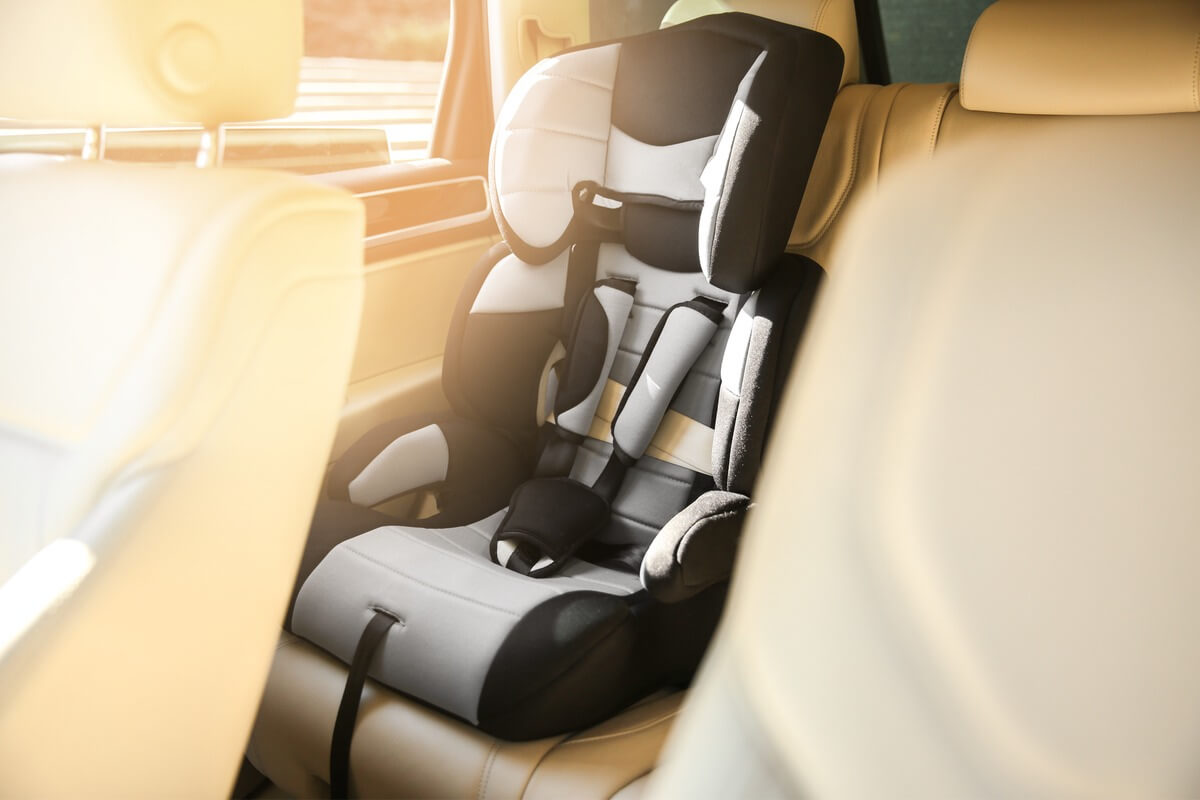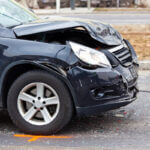
Partner at AKD Lawyers
Practice Areas: Personal Injury

Bringing a newborn home is one of the most memorable moments for any parent, but getting behind the wheel with your baby for the first time can be nerve-wracking.
If you’ve ever found yourself double-checking your baby’s car seat straps or worrying about every bump in the road, you’re not alone. The truth is that ensuring your newborn’s safety while driving goes far beyond just picking the right car seat. It’s about understanding proper installation, following legal requirements, and preparing for any situation that might arise.
In this guide, we’re diving deep into everything you need to know about driving with a newborn—from choosing the safest car seat to dealing with emergencies on the road. Whether you’re a first-time parent or need a refresher, keep reading to discover actionable tips and expert advice that can help you drive with confidence and keep your little one safe.
Importance of Car Safety for Newborns
Newborns are especially vulnerable during car travel due to their delicate bone structure and limited ability to control head movements. This makes choosing the right car seat and installing it correctly a crucial step in ensuring their safety. According to the National Highway Traffic Safety Administration (NHTSA), car crashes are one of the leading causes of injury for young children, making it vital for parents to follow proper safety practices.
In many states, including Louisiana, infants must be secured in an appropriate car seat. Failure to comply with these laws can result not only in penalties but also in an increased risk of severe injury in the event of an accident. Ensuring that you have a properly installed, rear-facing car seat can reduce the risk of fatal injury by up to 71 percent.
Choosing the Right Car Seat
Selecting the correct car seat for your newborn is the first step in ensuring their safety on the road. Infant car seats, convertible car seats, and booster seats each serve different age and weight requirements. For newborns, a rear-facing infant car seat is the safest option.
Rear-facing seats are designed to support your baby’s neck, spine, and head in the event of a sudden stop or collision. The American Academy of Pediatrics (AAP) recommends keeping children in rear-facing seats until they reach the maximum weight or height limit specified by the seat’s manufacturer, which is usually between 30 and 35 pounds.
It is equally important to ensure that the seat has not expired and has never been involved in a crash. Many parents overlook the expiration date on car seats, which is typically six to ten years from the manufacture date due to material degradation and evolving safety standards.
Correct Installation of Infant Car Seats
Installing a car seat correctly can be more complex than it seems. The NHTSA estimates that nearly 60 percent of car seats are installed improperly, which can significantly reduce their effectiveness in protecting your child.
To ensure a secure installation, follow these steps
- Place the seat in the back seat of the car, ideally in the middle position.
- Secure the seat using either the seat belt or the LATCH (Lower Anchors and Tethers for Children) system, but never both.
- Ensure that the seat does not move more than an inch side-to-side or forward when tugged at the base.

Many communities offer certified car seat inspection programs, often free of charge. Having a certified technician inspect your installation can provide peace of mind and ensure that your child is safe.
“Proper installation reduces the risk of injury by up to 70% during accidents.” — American Academy of Pediatrics (AAP
Car Seat Safety Checks and Maintenance
Routine checks are essential to ensure that your child’s car seat remains safe. Look for loose straps, cracks, or signs of wear on the seat’s shell. Car seats that have been involved in moderate to severe crashes should be replaced immediately, even if no visible damage is present.
Wash and inspect the harness straps regularly, and make sure the seat is free from toys or accessories not provided by the manufacturer. These can impact the car seat’s effectiveness in a crash
Essential Safety Tips for Driving with a Newbor
Driving safely with a newborn involves more than just a well-installed car seat. Ensuring that you, as the driver, are not distracted is just as important. Before starting your journey, adjust mirrors and seats, set up navigation, and ensure that any items your baby might need are within reach.
Avoid using your phone or adjusting the car stereo while driving. If your baby needs attention, it is safer to pull over than to attempt to resolve issues while the car is in motion.
“Never leave a baby unattended in a car, even for a few minutes.” — Centers for Disease Control and Prevention (CDC)
Maintaining a Comfortable Environment in the Car
Keeping your baby comfortable during travel can prevent fussiness and distractions for the driver. Ensure that the car’s temperature is moderate, as newborns cannot regulate their body temperature effectively. Use sun shades to protect your baby from direct sunlight, and avoid bulky clothing that can interfere with car seat harness straps.
Additionally, using a pacifier or playing soft music can help soothe a newborn during longer drives. Make sure to schedule regular stops to check on your baby and allow them to stretch.
Best Practices for Long-Distance Travel with a Newborn
Long trips with a newborn require careful planning. Experts recommend limiting car seat time to no more than two hours at a stretch to prevent positional asphyxia, a condition caused by restricted airflow due to an infant’s head falling forward.
Pack essentials such as diapers, wipes, feeding bottles, and a first-aid kit. Planning rest stops every one to two hours allows for feeding, diaper changes, and a break from the car seat.
Dealing with Emergencies on the Road
Preparation is key to handling emergencies effectively. Keep an emergency kit with essentials such as extra blankets, non-perishable snacks, a flashlight, and a charged mobile phone.
Knowing the location of nearby hospitals along your route can also be helpful.
If your baby appears unwell during the journey, pull over safely and assess the situation. Keeping emergency contact numbers accessible can save precious time.
Legal Guidelines and Complianc
Understanding state-specific car seat laws is essential. In Louisiana, for example, infants must be secured in a rear-facing seat until at least two years old or until they exceed the height or weight limit specified by the manufacturer.
Failure to comply with these regulations can result in fines and increased risk during travel. Ensure that you are familiar with both state laws and the manufacturer’s guidelines for car seats.
Pediatrician-Recommended Practices
Consulting with a pediatrician before long journeys can provide valuable insights. Recommendations often include feeding the baby shortly before travel to minimize fussiness and ensuring they are dressed comfortably. Safe sleep practices, such as ensuring the baby’s head is not slumped forward, can prevent breathing issues.
Common Mistakes to Avoid
A common mistake is switching to a forward-facing car seat too soon. The AAP recommends keeping children rear-facing until at least two years old. Incorrect placement of the chest clip and loose harness straps are other frequent errors that compromise safety.

Car Seat Types and Recommended Ages
| Car Seat Type | Recommended Age/Weight | Key Features |
| Infant Car Seat | Birth to 12 months (up to 22-35 lbs) | Rear-facing, portable with a handle |
| Convertible Car Seat | Birth to 4 years (up to 40-50 lbs rear-facing) | Converts to forward-facing, higher weight limit |
| Booster Seat | 4+ years (40-120 lbs) | Forward-facing with harness or seat belt guide |
Frequently Asked Questions
What is the safest position for a newborn car seat in the car?
The middle of the back seat is considered the safest position as it is farthest from potential impact zones.
How long can a newborn stay in a car seat at a time?
It is recommended to limit car seat time to no more than two hours at a stretch to prevent breathing issues.
Are second-hand car seats safe for newborns?
Second-hand seats are generally not recommended unless you can verify they haven’t expired or been in a crash.
When should a child transition from a rear-facing to a forward-facing seat?
Children should remain rear-facing until they are at least two years old or until they exceed the seat’s weight or height limits.
Conclusion
Ensuring your newborn’s safety on the road requires careful planning, adherence to legal requirements, and attention to detail. Choosing the right car seat, installing it correctly, and following recommended safety practices can make a significant difference. If you need personalized advice or have any concerns about car seat safety, consider consulting the experienced attorneys at Alvendia Kelly & Demarest. Their expertise can help you understand your rights and responsibilities to keep your child safe on the road.
Categories

In 2003, after being dissatisfied with the quality of legal care for victims of car accidents, Roderick ‘Rico’ Alvendia sought to establish a new firm focused on providing high-quality legal services to aid injured victims and their families. J. Bart Kelly, sharing Rico’s passion for upholding justice, joined the firm later that year, and established a partnership.






